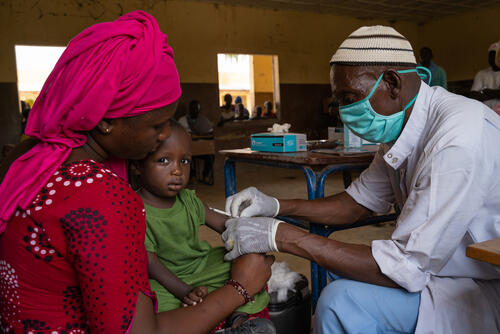Nigeria has recorded 359 cholera deaths in the first nine months of 2023, marking a 239% increase from the same period last year, according to data released Monday by the Nigeria Centre for Disease Control (NCDC).

The water-borne disease, which health authorities attribute to a lack of potable drinking water in rural areas and urban slums, has seen a significant surge in both fatalities and suspected cases.
“We’ve witnessed an alarming increase in cholera cases this year,” said Dr. Chikwe Ihekweazu, Director-General of NCDC. “The number of suspected cases has tripled to 10,837, up from 3,387 in the previous year.”
The NCDC report highlights that children under five years old are the most affected demographic, with Lagos, the country’s commercial capital, recording the highest number of cases. Additionally, northeastern Borno state reported a cholera outbreak amid flooding that has displaced nearly 2 million people.

Dr. Osagie Ehanire, Minister of Health, emphasized the compounding nature of this outbreak: “This cholera outbreak is exacerbating existing health crises, particularly in flood-affected areas.”
Public health experts stress the need for improved water and sanitation infrastructure. Professor Oyewale Tomori, a virologist and adviser to the Nigerian government, noted, “Addressing the root causes of cholera requires significant investment in clean water access and hygiene education.”
As Nigeria faces this escalating health crisis, authorities are calling for increased international support and local community engagement to combat the spread of the disease. The situation underscores the urgent need for comprehensive public health measures and infrastructure improvements across the country.



